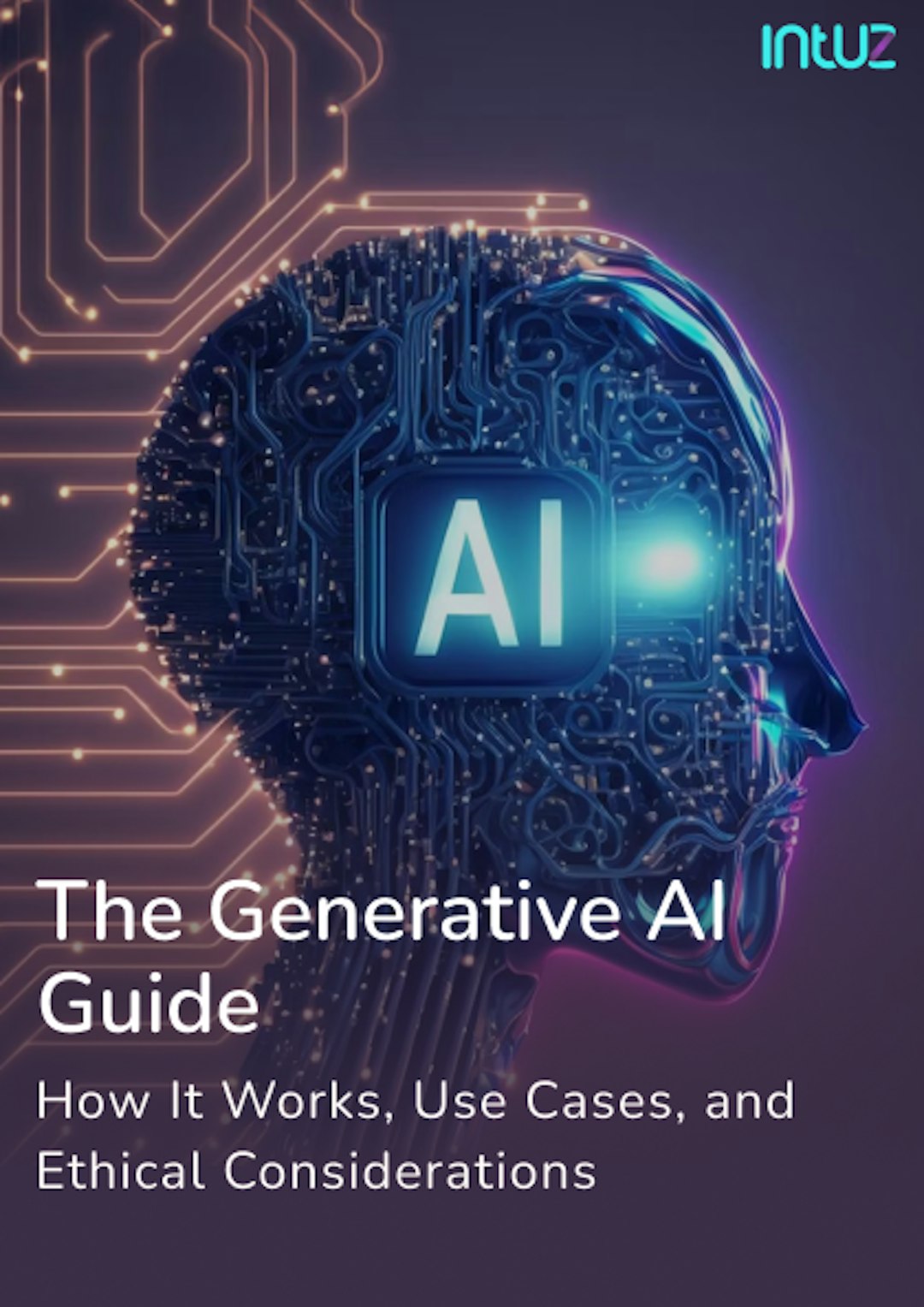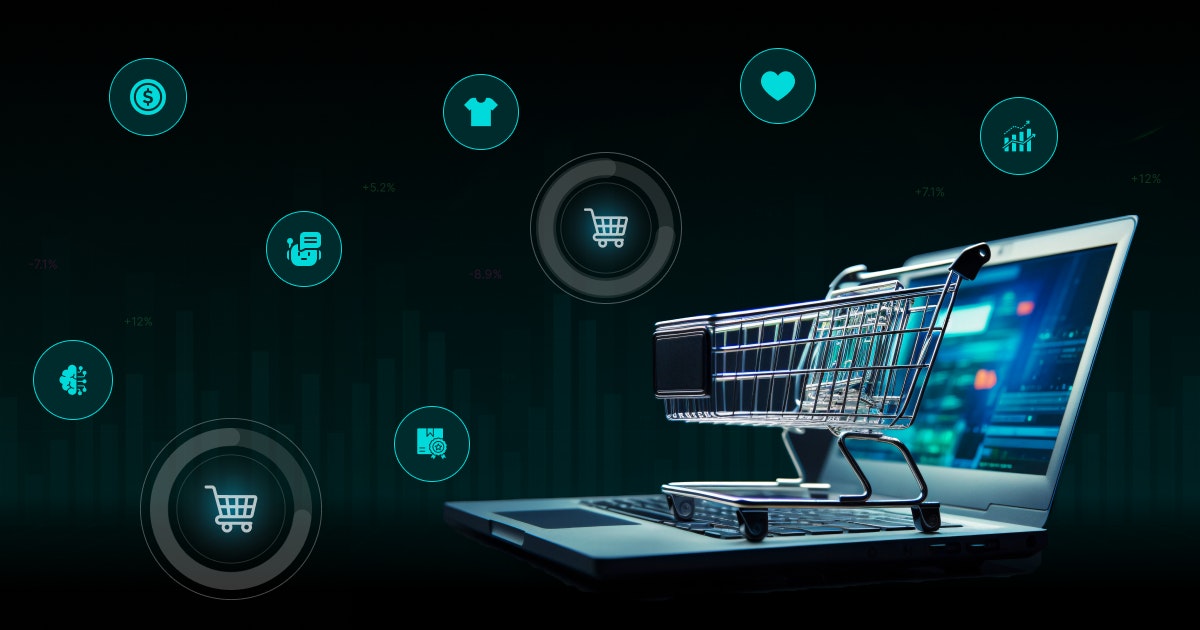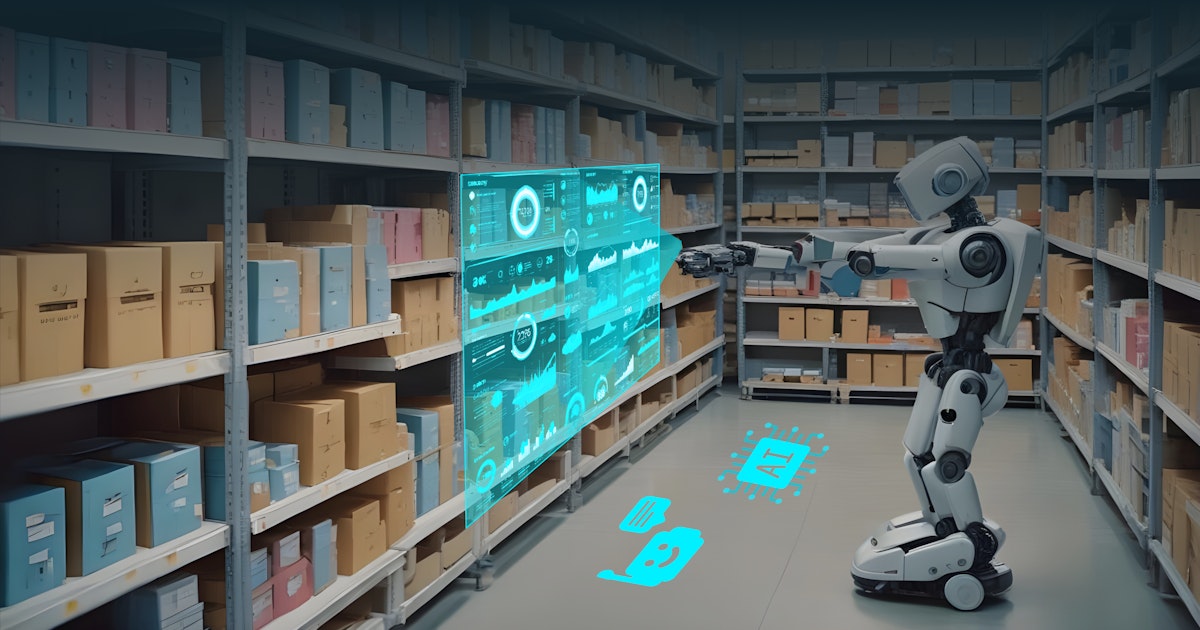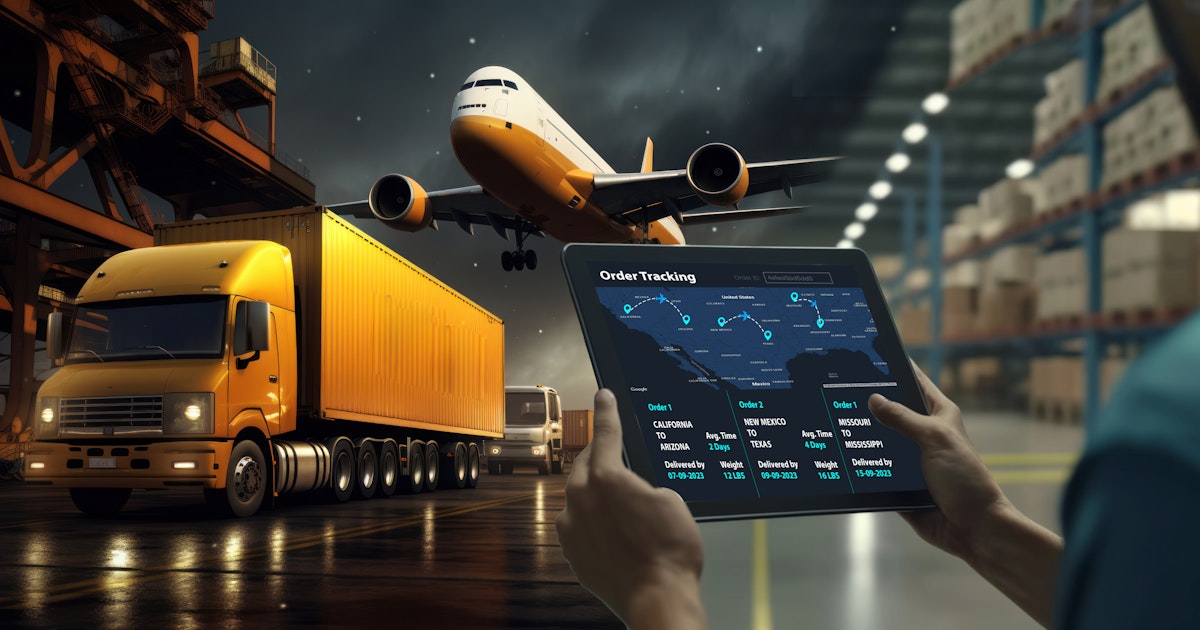Table of Content
Understanding the Role of AI in Supply Chain Optimization
As companies expand their reach globally and customer expectations about the buying experience continue to rise, managing shipments across complex networks has become more complicated for suppliers and fulfilment partners than ever.
Even a single disruption, such as a labour shortage or a factory shutdown, can create a ripple effect down the supply chain, ultimately leading to customer dissatisfaction and revenue loss.
By utilising Artificial Intelligence (AI) in supply chain management, companies can optimise activities like planning, production, and route management based on real-time data insights. In this blog post, we offer a brief overview of what that looks like.
AI in supply chain management
AI in supply chain management refers to using smart computer systems - AI to help companies plan, track, and manage the flow of goods more efficiently. It helps predict demand, avoid delays, and save time and money.
AI refers to the simulation of human intelligence by applications to perform complex activities like learning, problem-solving, and decision-making. There are several subsets of AI, including Machine Learning (ML), Internet of Things (IoT), Natural Language Processing (NLP), Robotic Process Automation (RPA), and so on.
Essentially, AI can study vast volumes of data to uncover patterns and anomalies that manual effort would miss, enabling companies to make informed decisions and predictions.
Over the last several years, AI has been applied to several aspects of supply chain management, such as tracking inventory, streamlining factory workflows, optimising shipping routes, maintaining the integrity of transaction records, and so on.
Most supply chains are highly complex, with multiple moving parts, from sourcing product components to maintaining complicated machinery to scheduling shipments.
AI particularly enables manufacturers to gain control over these moving parts and make the most time-saving and cost-effective decisions at every step.
How does AI in supply chain work?
AI, just like in other industries, is making waves in supply chain as well. Generative AI, for all its accomplishments, is pioneering innovative outlooks on the supply chain processes, and beginning to transform the industry.
Resilience in strategising, faster operations, and smarter tactics to meet industry demands are all being boosted with AI. With applications like demand forecasting, route optimisation, automation of warehouse processes, and much more, let us take a dive into how AI is benefitting the supply chain industry and enabling precision and agility.
How Intuz Helps An E-commerce Store with End-to-End Supply Chain Management -Case Study
Explore NowDemand Forecasting
Personalised predictions for businesses and consumers alike have been one of the biggest applications of AI in supply chain. With deep analytics, AI reads and analyses through troves of historical sales data, market trends, customer preferences, external factors, and much more. This has helped businesses predict demand shifts within their industry with incredible accuracy.
As a demonstration of AI’s capabilities with accurate demand forecasting, let us take a look into Danone, a French food products manufacturer. The brand is optimising its sales and reducing the wastage of fresh food products due to their short shelf-life with secure demand forecasts. Danone then uses targeted media events and promotions, which has resulted in reduced forecast errors and lost sales by over 25%!
Route Optimisation
Businesses are also utilising AI algorithms to analyse and process datasets that can help them optimise their routes. With various factors like delivery addresses, weather forecasts, traffic patterns, and more, these algorithms are able to facilitate the most effective, cost-optimised and fast delivery routes.
This can help businesses in minimising transportation costs and shorten lead times. In fact, recent research shows that the implementation of AI for route optimisation for delivery systems has reduced delivery times by up to 30%, and improved delivery accuracy by over 90%!
Warehouse Automation
With accurate forecasting, AI is also helping businesses in optimising their warehouse space usage based on anticipated demand shifts in products, and optimise their inventory management with smart automation.
Warehouse management systems and AI-powered robots are automating and streamlining tasks like sorting items, packaging, inventory management, and production scheduling. This helps them maintain a steady inventory surplus to match market demands.
The warehouse robotics market was already valued at a whopping $4.86 billion in 2022, and projected growth to over $12 billion by 2030 indicated the paradigm shift that establishes its importance within the supply chain industry.
Supply Chain Visibility:
Combining all the previous applications, AI also boasts greater supply chain visibility as a benefit. With better visibility, businesses can respond to market disruptions in real-time.
AI helps by gathering data from multiple sources, real-time tracking of shipments, tracking inventory levels in real-time to maintain the movement of goods to meet market demands, and much more.
A big pain point in 2021 was that only 2% of businesses claimed they had supply chain visibility beyond second-tier suppliers. With constantly updating datasets and the availability of AI-powered deep analytics tools, this problem statement has now become a thing of the past, with a reported 22% increase in operational efficiency.
Benefits of AI in Supply Chain Management
AI offers visibility, transparency, time savings, and cost savings on an unprecedented scale for modern supply chains. The benefits of AI in supply chain management include:
1. Increased efficiency
AI helps manufacturers fulfil orders faster and more accurately than ever before. From demand forecasting to automatic records and updates, optimised route suggestions, and enhanced quality checks, AI supply chain management offers a far more streamlined experience than traditional supply chain management.
2. Enhanced decision-making
AI-driven systems can study historical and real-time data to identify the root cause of a problem and deliver a solution almost instantly. This enables faster decision-making even in urgent situations, a significant advantage in a volatile economy.
3. Cost reduction
AI can study thousands of data points to offer unique insights on where and how companies can save money, such as by swapping freight providers or using a more cost-efficient packing material. Plus, learning tasks and executing them quickly helps manufacturers get things done much faster than hiring a human team.

4. Real-time data and insights
AI algorithms can be leveraged to study behaviors and rectify any problems early on, such as a failing machine or a product defect. They also offer real-time insights into customer demand patterns, enabling manufacturers to recalibrate their inventory and fulfillment plans as necessary.
5. Sustainability and environmental impact
AI can help identify inefficiencies that lead to waste in production and logistics, enabling more sustainable supply chain practices. Optimizing logistics, transport routes, and production schedules helps companies reduce their carbon footprint and contribute to environmental sustainability.
6. Better Inventory Management
AI suggests the best flows for inventory management. For that, entrepreneurs need to consider real-time data, predict demand, and automate stock replenishment. It will prevent overstocking and shortages, allow seamless operations, and save costs as a bonus!
7. Improving Operations with Simulations
AI-driven simulations are providing businesses with the opportunity to analyse different supply chain scenarios before making real-world decisions. Generating unknown scenarios to test strategies has made AI simulations imperative in enabling complex decision-making with better results.
Various “what if” scenarios run through AI simulations can offer businesses with prescribed actions with the best possible outcomes. These simulations can focus of various parameters or performance indicators like profits, supply change, production capacity, service level agreements, and much more.
Companies can identify strategies that best minimise risk and costs by working through various parameters.
Explore our custom AI Development Services to enhance your business efficiency!
Check outKey applications of AI in supply chain
Here are some of the ways AI is helping companies build more resilient supply chains:
1. Demand forecasting
AI can study historical consumer data as well as market trends (such as seasonal shifts, political factors, current events, etc.) to help manufacturers forecast demand and thus plan their production and warehouse capacity in advance.
Walmart, Target, and Macy’s use AI for demand forecasting, particularly during peak shopping periods like Black Friday. By analysing large datasets of historical purchases and external trends, they can predict and meet consumer demand with high accuracy.
2. Inventory management
With granular insights into customer demand, manufacturers can produce only what is needed, thus avoiding the risk of overstocking or stockouts.
AI also helps streamline inventory management by automating the documentation of each SKU, providing insights into storage ideas for maintaining product quality and updating the system every time goods flow in or flow out.
IKEA uses an AI-powered inventory system, which predicts stock needs based on local trends, warehouse space, and even environmental factors like weather patterns that could affect transportation.
3. Production Planning
AI contributes to effective production planning by analysing demand trends, raw material consumption, and machine availability. It facilitates logical resource distribution, reducing wastage and delays. Businesses can adapt swiftly to market changes without disrupting day-to-day operations. For instance, Siemens has integrated AI production planning to enhance their operations and workflow, which has resulted in increased efficiency and limited downtime in their factories.
4. Product Design and Innovation
AI enhances product design by analysing trends, customer preferences, and performance characteristics. Organisations are then able to create innovative products faster while cutting down R&D costs. Nike has found a way to boost their positive customer experience and reduce production waste with AI design tools, utilising them for customised shoe designs, which have gained huge popularity amongst its customer base.
5. Quality control
AI can scan products, detect defects or anomalies, and update details to a central dashboard for fast, efficient quality checks. It can also offer smart insights on packaging and storage to preserve item quality as transported down the supply chain.
Many automotive companies, like BMW and Audi, use AI-powered vision systems to inspect parts for defects. These AI systems flag inconsistencies and defects in real-time, minimising rework and ensuring higher-quality production.
6. Route optimisation
AI in logistics can intelligently study transportation networks, from warehouses all the way to last-mile distribution centres, and determine the fastest and most efficient route for each shipment. This application of AI in transportation enhances overall efficiency and reduces delivery times.
DHL indeed uses AI to optimise routes, leveraging real-time traffic, weather data, and other factors to determine the most efficient delivery paths.

7. Warehouse automation
More and more factories are investing in AI for warehouse automation. From maintaining minute logs of activity to powering autonomous machinery, conducting granular quality checks, and auto-flagging any maintenance needs, AI helps manufacturers run a tight ship with their production.
Amazon optimises warehouse operations by using robots (Kiva Systems) in its fulfilment centres. These robots, guided by AI, make the picking and packing process more efficient.
8. Supplier relationship management
AI makes it easy to maintain communication with your suppliers and transport partners.
All updates and documents can be shared on a centralised platform, with auto-notifications whenever something changes. This helps everyone stay on the same page about each shipment and improves mutual trust and collaboration.
9. Risk Management
By examining supplier reliability, geopolitical factors, and market patterns, artificial intelligence helps mitigate supply chain risks. Companies can also receive real-time alerts on potential disruptions. The foresight will help proactively address issues and maintain supply chain continuity. In practice, it can look like Maersk, which employs predictive algorithms to foresee interruptions and reroute shipments away from delays that could set cargo back by a lot.
10. Predictive Maintenance
AI-driven predictive maintenance improves equipment reliability by evaluating sensor data to detect potential failures before they occur. This reduces downtime and maintenance costs.
Enhance supply chain efficiency using AI Agent. Explore how it works today!
Contact NowKey Challenges of AI in Supply Chain Management
1. Handling high startup costs
AI implementation can come with steep upfront investments. It demands covering software licenses, computing infrastructure, and custom model development. Whether using off-the-shelf models or building from scratch, businesses must account for the time and resources needed to train models on clean, relevant historical data.
2. Maintaining complex AI systems
AI systems aren’t “set and forget.” They require ongoing monitoring, testing, and fine-tuning to stay aligned with business goals. As supply chains evolve, so must the AI models that support them. It’s essential to review and refresh them periodically—monthly, quarterly, or annually—depending on the specific needs of the organization.
3. Integrating AI with legacy systems
Many enterprises still rely on aging infrastructure, which can clash with modern AI tools. Integrating new AI solutions with legacy ERPs or warehouse management systems may require APIs, middleware, or complete overhauls, raising compatibility and security concerns.
4. Ensuring data security and privacy
AI is only as good as the data it’s trained on. Inaccurate, outdated, or poorly governed data can lead to flawed recommendations. Worse, insecure data pipelines may expose sensitive supplier or customer information, putting the company’s compliance and reputation at risk.
5. Reducing downtime during AI training
Bringing AI into your supply chain requires upskilling teams, often resulting in short-term downtime. To minimize disruptions, it’s essential to plan a structured onboarding process, schedule training sessions in phases, and maintain open communication with both internal and external stakeholders.
6. Meeting regulatory and compliance standards
AI tools handling trade, logistics, and environmental data must comply with ever-changing situations. Whether it’s ESG reporting, custom documentation, or worker safety laws, it’s vital to ensure AI systems are in sync with local and compliance standards.
7. Overcoming resistance and ensuring human oversight
Contrary to popular belief, AI doesn’t replace people. It certainly augments them. But its adoption can stall if teams fear job loss or don’t trust the system. Companies must, therefore, invest in change management so that they have the right tools to communicate benefits clearly and retain human oversight to validate AI outputs and ensure accountability.
How to Prepare Your Supply Chain for AI Implementation
1. Assess your current supply chain
Start by evaluating your entire logistics network, including any bottlenecks, inefficiencies, and recurring challenges that come to mind. This will help you pinpoint where AI can deliver maximum value. Secondly, map out your entire supply chain. You may also encounter friction points, such as excess inventory, delayed shipments, and manual reporting delays.
2. Clean and organize your data
AI health is directly proportional to the quality and quantity of data being used. If the data sets are unstructured, messy, or siloed, the outcomes will suffer. Ensure your historical supply chain data is accurate, centralized, and categorized.
A practical approach is to clean up inconsistencies, remove duplicates, and separate structured from unstructured data formats before implementation begins.
3. Define clear objectives and prioritize
Don’t try to solve everything at once. Identify the most pressing issues first, whether it’s improving delivery times, minimizing waste, and enhancing visibility, and set measurable goals for each.
For instance, if your priority is to achieve robust business impact and feasibility, then solve critical challenges (e.g., crashing sales due to a broken sales process) first, and subsequently expand to lower-priority areas (e.g., redesigning the business logo).
4. Choose the right AI solution
Every supply chain is different. Select an AI system that aligns with your specific goals and existing infrastructure. Consider scalability, vendor support, and integration needs during the decision-making process.
You may want to explore multiple AI tools and consult an expert, such as Intuz, if needed. What works for another company in your domain might not be the best fit for yours.
5. Prepare your team
Indeed, AI is ubiquitous, and it seems to be used for a wide range of personal and professional purposes. But that doesn’t mean it doesn’t call for a change management exercise.
Equip your team with the knowledge, training, and mindset necessary to work confidently alongside AI tools. Set realistic expectations about what AI can do, what it can’t, and the role your team plays in managing its use efficiently.
Ensure everyone is on the same page regarding its implementation.
6. Implement and monitor continuously
Roll out your AI solution in phases. Track performance, document learnings, and tweak as needed to improve outcomes. AI is not a one-time deployment; it’s an evolving system. What will help is setting up regular checkpoints for testing, refinement, and user feedback. Use performance data to guide improvements.
Future Trends of AI in Supply Chain Management
The potential for AI in supply chain management remains largely untapped. Around the world, manufacturers and researchers are finding newer and newer ways to put this technology to good use:
1. Simulations
Many supply chain managers are leveraging the power of digital twins along with AI to create powerful simulations that identify process inefficiencies, potential disruptions, and product/packaging defects with unprecedented clarity.
Through simulations, companies get visual insights into their supply chain that are easy to understand and useful for demonstrating to stakeholders.
2. AI and Blockchain
Blockchain is an emerging technology that can offer unprecedented degrees of transparency for every stakeholder in the supply chain.
All transactions are recorded on a securely shared ledger, enabling complete traceability while reducing the administrative burden of maintaining records. This helps forge trust among global value partners by creating a single, encrypted source of truth.
3. Sustainability and AI
The supply chain industry has long been criticised for its poor adherence to sustainability practices, and AI can help change that. For instance, it can map the most fuel-efficient delivery routes and suggest the optimum amount of packaging material for each item.
It can also help manufacturers make the right choices by flagging vendors or locations that might be known for unethical practices.
4. AI and autonomous vehicles
Experiments on autonomous vehicles have already begun, and AI has the potential to revolutionize the fulfillment process of orders with drones and driverless vehicles.
They can cover longer distances faster than human drivers and make smart decisions about which path to take based on real-time inputs about road conditions or fuel-efficient options.
Final Words
Global supply chain networks are becoming increasingly complex, and the only way for companies and manufacturers to keep pace with that growth is by gaining visibility and control over the entire process.
Therefore, now more than ever, it’s vital for them to invest in supply chain optimization with AI-powered systems.
We recommend starting small and automating the tasks that take up the most time in your day, which leads to the most immediate benefits. Here are some examples of how custom artificial intelligence solutions can help streamline your processes and boost productivity:
That way, you benefit from granular insights on how to save money, fine-tune your supply chain, and meet your ethical and corporate responsibilities. Good luck!







